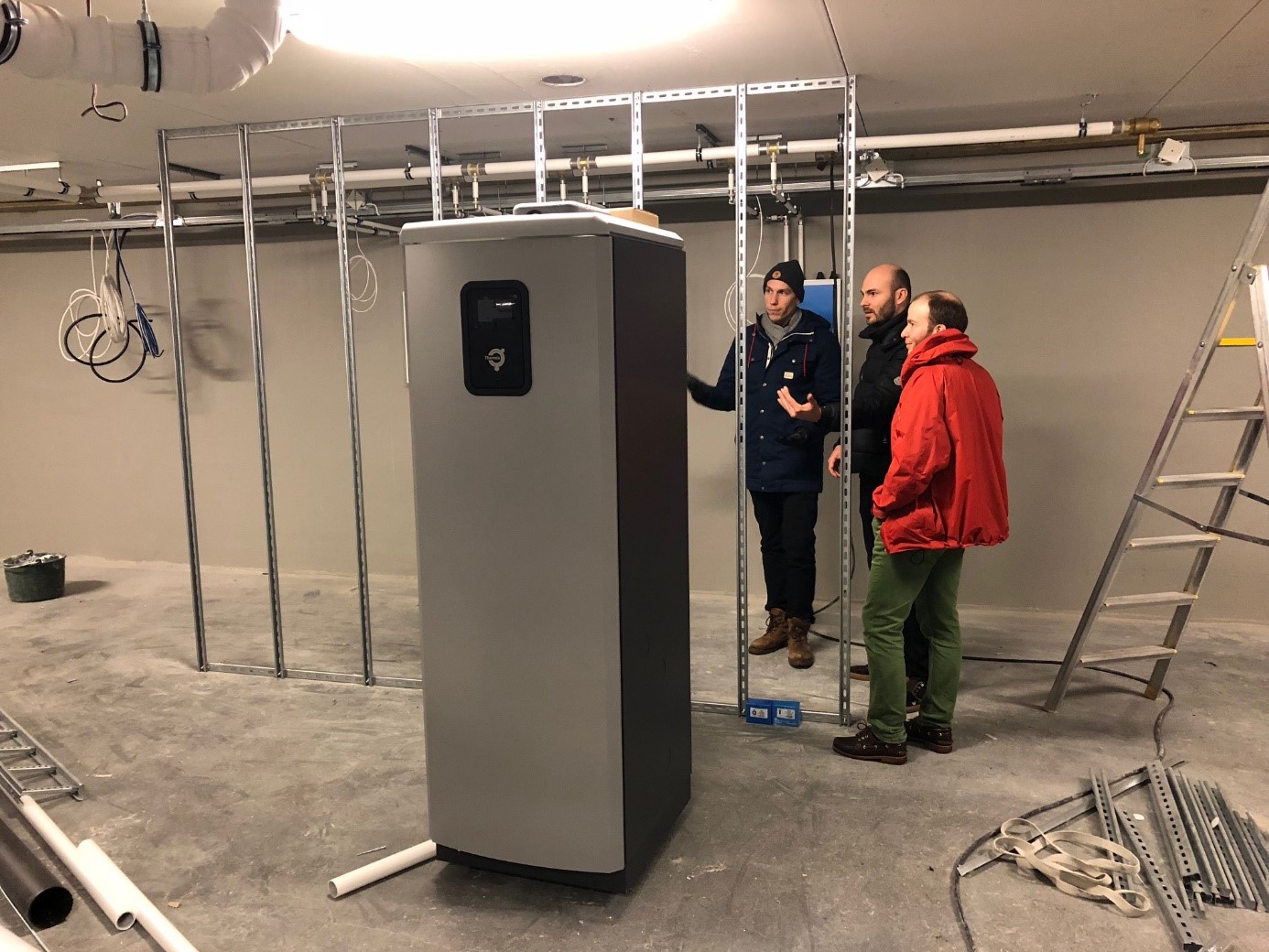New heat pump at KTH Live-In Lab

The new heat pump from Thermia has arrived at KTH Live-In Lab. Its high level of performance will enable complex inputs and potentially better thermal and hydraulic characterization of borehole heat exchangers.
A new heat pump that will be used in the framework of the research project regarding is now at KTH Live-In Lab. This heat pump from Thermia will play a central role in the project´s experimental setup. Through the use of this heat pump, the development of an innovative testing methodology for borehole systems along with the performance assessment of new types of ground heat exchangers, will be enabled. The heat pump features variable speed compressor and allows heat extraction and injection over a wide range of power. This will enable complex inputs and potentially better thermal and hydraulic characterization of borehole heat exchangers. The testing method - object of investigation in this project - will also rely on the flexibility of the heat pump and is expected to provide valuable inputs to improve the control of such systems.
In the spirit of KTH Live-In Lab, other research projects may in the future become directly or indirectly coupled to the heat pump. This can potentially provide useful data regarding the interaction between systems, yielding a more holistic perspective of production, storage and distribution of heat in buildings.
The heat pump comes from the research project partner Thermia Värmepumpar , part of the Danfoss group. Stefan Wingskog, R&D Manager, Refrigeration design & Lab at Thermia Värmepumpar, comments on Thermia’s participation in KTH Live-in-Lab:
“Thermia Värmepumpar are proud to take part in this interesting research. We are looking forward to exciting results evaluating new technologies in the fields of borehole/collector heat transfer, smart (predictive) controls, fault detection and diagnosis.”
Picture: Thermias heat pump in the basement of KTH Live-In Lab and researchers Willem Mazzotti, Alberto Lazzarotto and Marco Molinari at KTH Energy Technology.